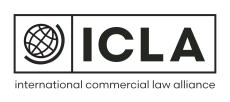The Immigration Minister, Iain Lees-Galloway, has warned that some immigration policies, specifically in relation to employer accreditation and labour market testing, are currently under review. The Minister was speaking at the Canterbury Employers’ Chamber of Commerce recently, and provided an overview of the Government’s priorities in immigration, ACC and workplace relations policies. It is understood consultation documents are likely to be released soon highlighting intended changes to the employer accreditation policy.
As a backdrop, we are currently seeing some resistance from Immigration New Zealand (INZ) in relation to renewal applications for employer accreditation. This has been particularly noticeable where employers have hired employees outside the occupations they had indicated that they intended to employ in their most recent application. It appears that INZ is applying policy in a way to try and achieve an outcome where less skilled roles are not acceptable. For example, we have seen significant push back from INZ for those occupations at ANZSCO skill level 4 and 5. This is despite the aim of the accreditation policy which is to allow accredited employers to supplement their workforce in their core area of business activity, which is of course irrespective of ANZSCO skill level.
We do not fully understand why INZ is taking this approach. However, the recent presentation by the Minister has provided two clues. Firstly, there most likely will be suggested changes to the current employer accredited scheme, and we suspect that the types of occupations that are permitted to be employed by accredited employers may well be limited in the new policy to higher ANZSCO skill levels, and only occupations listed by the employer in their application.
Second, the Minister emphasised that they are currently looking at changes to the policies governing labour market testing, which are undertaken before granting certain types of work visas. As predicted, we believe these market tests will become far more onerous as the new government will want to make a strong effort to have employers train and employ some of the 80,000 young New Zealanders who are not in employment or study. We expect employers will need to prove more meaningful engagement with WINZ and other agencies demonstrating how they have helped these young people into work, rather than resorting to migrant labour at the lower skilled end.
We anticipate these two aspects in combination will create issues for accredited employers and non-accredited employers alike as they try to supplement their workforce with migrants. If you believe you may have already received excessive resistance from INZ with either lower-skilled employees seeking visas under your employer accreditation or with stricter labour market testing, please reach out to us to discuss.
Workplace Law Team
If you have any queries in respect of the above, or any other Workplace Law issues, please contact a member of Lane Neave’s Workplace Law Team:
Employment: Andrew Shaw, Fiona McMillan, Gwen Drewitt, Maria Green, Hannah Martin, Joseph Harrop, Holly Struckman, Alex Beal, Giuliana Petronelli, Abby Shieh
Immigration: Mark Williams, Rachael Mason, Daniel Kruger, Nicky Robertson, Julia Strickett, Ken Huang, Mary Zhou, Shi Sheng Cai (Shoosh), Sarah Kirkwood, Janeske Schutte, Lingbo Yu
ACC: Andrew Shaw
Health and Safety: Andrew Shaw, Fiona McMillan



